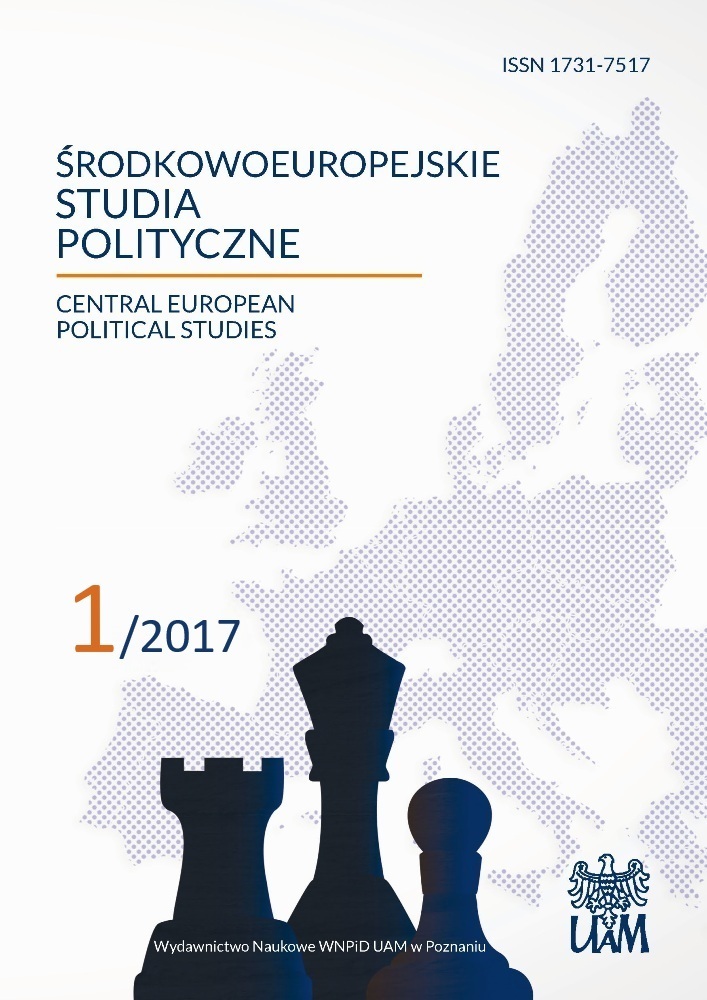Abstract
The aim of the article “Polish political culture in the light of the parliamentary budgetary debates from 2001–2010. Selected aspects” is to point out the main directions of the evolution of the Polish customs and political attitudes that can be seen by analyzing the Polish parliamentary budget debates carried out in the period from 2001–2010. The course of the first debate readings from 2001 to 2010 has been examined, where attention is focused on two areas of description: quantitative – the conditions of the regulations, the form (long or medium debate), the participants, including their number and function (regarding executive power, parliament, and parliamentary club), and qualitative – selected semantic and pragmatic elements of the debate language in support of or opposed to the government proposals (here reduced to the two selected debates from 2002 and 2010). As opposed to the declarations made by the participants, the conclusions resulting from this analysis indicate the decreasing importance of the budget debate, as well as its apparent professionalization and actual politicization, resulting in phenomena related to the mediatization and tabloidization of politics.
References
Almond G., Powell B. (1975), Kultura polityczna, w: Elementy teorii socjologicznych, red. W. Derczyński, A. Jasińska-Kania, J. Szacki, Warszawa.
Analiza wykonania budżetu państwa i założeń polityki pieniężnej w 2003 roku, NIK, Warszawa 2004.
Analiza wykonania budżetu państwa i założeń polityki pieniężnej w 2011 roku, NIK, Warszawa 2012.
Beck U. (2004), Społeczeństwo ryzyka, Warszawa.
Czasy debat, http://www.sejm.gov.pl/Sejm7.nsf/agenda.xsp?symbol=CZASY_DEBAT – stan na 16 grudnia 2014 r.
Goldfarb J. C. (2012), Reinventing Political Culture. The Power of Culture versus the Culture of Power, Malden–Cambridge 2012.
Proksch S.-O., Slapin J. B. (2015), The Politics of Parliamentary Debate, Cambride University Press 2015.
Sprawozdanie stenograficzne z 31. posiedzenia Sejmu Rzeczypospolitej Polskiej w dniu 11 października 2002 r. (drugi dzień obrad), Warszawa 2002.
Sprawozdanie stenograficzne z 86. posiedzenia Sejmu Rzeczypospolitej Polskiej w dniu 14 października 2004 r. (drugi dzień obrad), Warszawa 2004.
Sprawozdanie stenograficzne z 26. posiedzenia Sejmu Rzeczypospolitej Polskiej w dniu 11 października 2006 r. (drugi dzień obrad), Warszawa 2006.
Sprawozdanie stenograficzne z 24. posiedzenia Sejmu Rzeczypospolitej Polskiej w dniu 9 października 2008 r. (trzeci dzień obrad), Warszawa 2008.
Sprawozdanie stenograficzne z 51. posiedzenia Sejmu Rzeczypospolitej Polskiej w dniu 8 października 2009 r. (drugi dzień obrad), Warszawa 2009.
Sprawozdanie stenograficzne z 70. posiedzenia Sejmu Rzeczypospolitej Polskiej w dniu 7 października 2010 r. (drugi dzień obrad), Warszawa 2010.
Viera R. A. (2015), Time and Politics: Parliament and the Culture of Modernity in Britain and the British World, Oxford University Press.
Wiatr J. J., (1999), Socjologia polityki, Warszawa.
Wnuk-Lipiński E. (2008), Socjologia życia publicznego, Warszawa.
Załącznik do uchwały Sejmu RP z dnia 30 lipca 1992 r. – Regulamin Sejmu RP (t.j. MP 1998, Nr 44, poz. 618 z późn. zm.).

